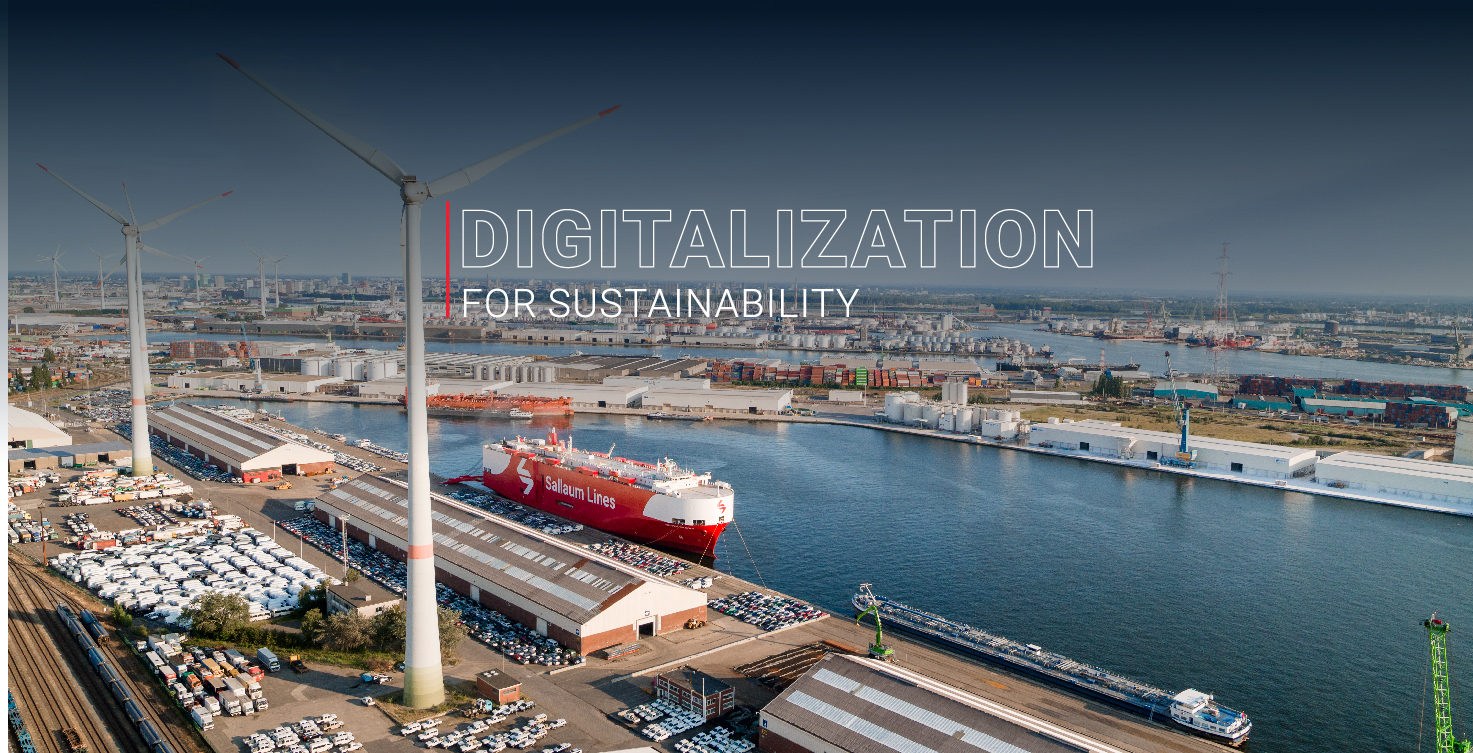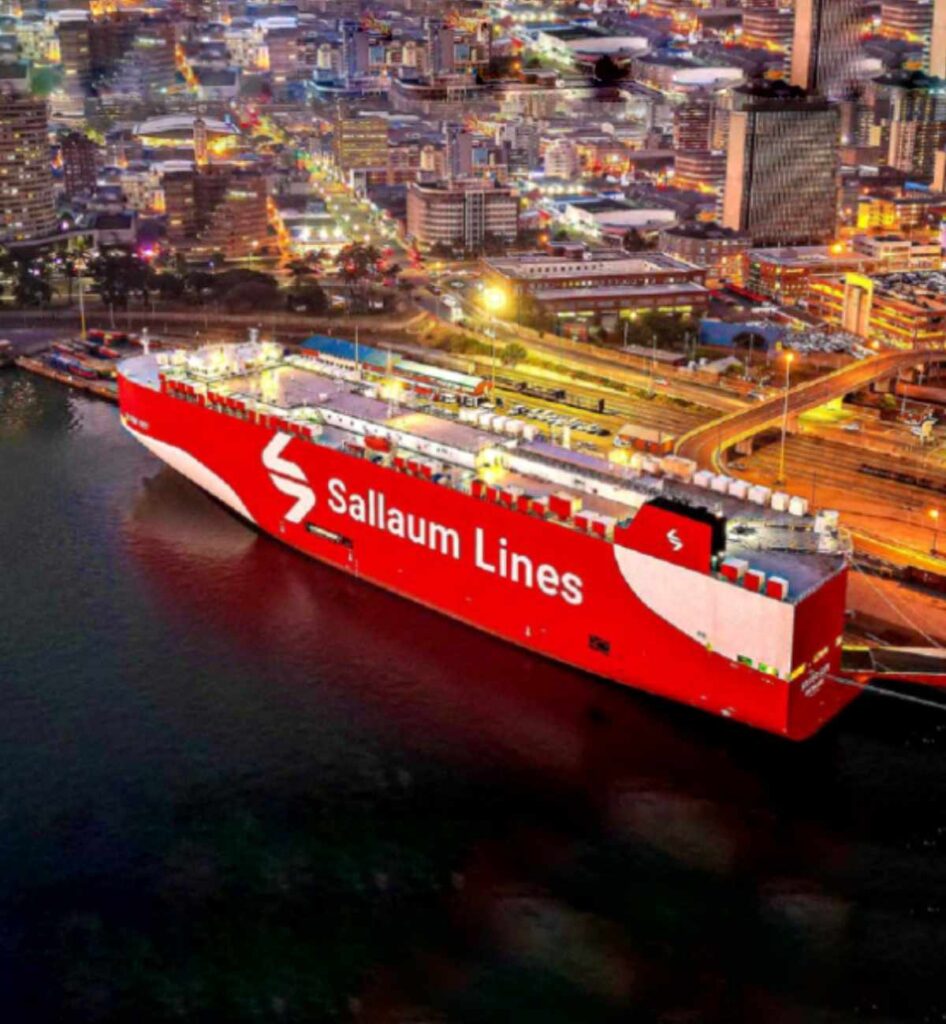The maritime industry is adopting digitalization as a transformative force to enhance operational efficiency, reduce environmental impact, and ensure regulatory compliance.Leveraging technologies such as IoT, big data, and digital twin models, shipping companies can optimize performance while driving sustainability.
Digitalization across its fleet
Sallaum Lines, a global global leader in roll-on/roll-off shipping, is one of the companies actively implementing various facets of digitalization across its fleet, setting an example for sustainable maritime operations. Here’s how Sallaum Lines is harnessing digitalization to make the maritime sector greener and more efficient.
(IoT) plays a crucial role
The Internet of Things (IoT) plays a crucial role in maritime digitalization by enabling the automatic collection of data from sensors placed across vessels.
For better decision
At Sallaum Lines, this data provides real-time insights into engine performance, fuel consumption, hull condition, and environmental factors. By automating data collection, human errors are significantly reduced, improving accuracy and operational transparency.
With this real-time availability of operational data, the company ensures that stakeholders have access to up-to-date information for better decision-making and improved governance.
Simplify regulatory compliance
Sallaum Lines leverages digitalization to simplify regulatory compliance by automating the tracking, reporting, and verification of emissions and fuel consumption data. This automation ensures compliance with international frameworks such as the Monitoring,
![]()
Automated reporting systems
Reporting, and Verification (MRV) system, the International Maritime Organization’s Data Collection System (IMO DCS), and newer regulations like the EU Emissions Trading System (EU ETS) and Fuel EU Maritime. Automated reporting systems reduce manual intervention, ensuring timely, accurate submissions and helping the company avoid penalties and fines.
Big data analytics
The integration of big data analytics enables Sallaum Lines to comprehensively analyze vessel performance, including hull, propeller, and machinery performance. This holistic approach helps identify inefficiencies and areas for improvement, allowing us to fine-tune vessels for optimal performance.
Digital twin models
Big data also forms the foundation for creating digital twin models—virtual replicas of vessels that simulate real-world operations. By using these models, Sallaum Lines can simulate and analyze various operational scenarios, supporting informed, data-driven decisions and improvements.

IoT sensors allows
Granular condition monitoring enabled by IoT sensors allows the company to continuously assess the condition of machinery in real time. Digital tools track vital parameters such as temperature, pressure, and vibration, enabling predictive maintenance.
Proactive maintenance
This proactive maintenance approach detects early signs of wear and tear, allowing us to address issues before they lead to costly breakdowns or unexpected downtime. Predictive maintenance not only reduces maintenance costs but also improves overall performance and energy efficiency, ensuring vessels operate in peak condition.
Make informed decisions
Additionally, Sallaum lines employs data-driven insights from digital twins and big data analytics to make informed decisions regarding retrofits. These insights help evaluate the cost-effectiveness and performance benefits of retrofits, such as hull modifications or energy-saving devices.
Optimize energy use
By assessing potential retrofits based on real-time data, Sallaum Lines can ensure alignment with sustainability goals, while ongoing performance tracking helps assess whether retrofits are meeting their targets. Machinery tuning, based on real-time performance data, also allows for continuous adjustments to optimize energy use and fuel consumption.
Revolutionizing weather routing
At Sallaum Lines, digital twin models are revolutionizing weather routing and voyage optimization by integrating real-time weather forecasts and simulating various routing scenarios to ensure safer, more efficient voyages.
This improves fuel efficiency and reduces emissions, while also ensuring on-time arrival—a critical factor for supply chain reliability. These digital twins allow operators to optimize routes by avoiding adverse weather conditions, the company consumption, and improving safety.
Improved (CII)
Digital tools enable Sallaum Lines’ vessels to operate at their optimum capacity. Real-time monitoring and advanced analytics allow for optimum fuel consumption, translating to reduced fuel usage, lower emissions, and enhanced compliance with environmental regulations.
These measures contribute to improved Carbon Intensity Indicator (CII) grading and reduce financial liabilities under frameworks like the EU Emissions Trading System (ETS).
Next wave of innovation
As the maritime sector continues to adopting digitalization, Sallaum Lines prepared for the next wave of innovation with AI-powered systems. These systems will leverage real-time data and predictive models to further optimize weather routing, fuel consumption, and vessel performance. By dynamically adjusting routes and operational parameters,
AI systems can further reduce fuel consumption, emissions, and operational costs. This next generation of digital tools will push the industry closer to its sustainability goals while ensuring safe and efficient maritime operations.
Digital twin models for predictive
Digitalization is transforming the maritime industry by providing innovative tools and systems that enhance both efficiency and sustainability. From automated data collection and regulatory reporting to the creation of digital twin models for predictive maintenance and voyage optimization, digital tools offer a holistic approach to improving operational performance and environmental responsibility.
Sallaum Lines, with its commitment to digital innovation, is leading the way in applying these technologies to achieve greater sustainability, reduce costs, and ensure regulatory compliance.
Read more :
Natalie Sallaum as Chief Relationship Officer at Sallaum Lines
Safety and Security Features Aboard Sallaum Lines’ Newbuildings




